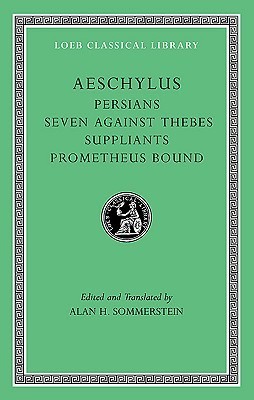
Agamemnon
Book Description
Blood will spill under the weight of betrayal in this riveting tale of power and vengeance. Agamemnon returns home victorious from war, but the shadow of his past looms larger than the hero's glory. His wife, driven by a dark vendetta, waits with a heart racing for retribution. Tension crackles as loyalty and ambition collide within the palace walls, where every secret ripples with the threat of ruin. As alliances fracture and moral lines blur, who will pay the ultimate price for ambition? Can a kingdom survive the sins of its king, or will revenge reign supreme?
Quick Book Summary
"Agamemnon," the first play of Aeschylus' Oresteia trilogy, dives into the tragic aftermath of the Trojan War and the cursed House of Atreus. King Agamemnon returns to Argos triumphant, bringing with him captive princess Cassandra. His arrival is shadowed by the memory of his sacrificial murder of his daughter Iphigenia, an act committed to garner favorable winds for Troy. Agamemnon's wife, Clytemnestra, fueled by grief and vengeance, welcomes him home with deceptive warmth but harbors deadly intent. As palace intrigue unravels and the gods' justice looms, Clytemnestra's calculated revenge culminates in Agamemnon's murder, unraveling the royal family's fate and setting the stage for a cycle of bloodshed and retribution that underpins the tragic moral complexities of family, power, and vengeance.
Summary of Key Ideas
Table of Contents
Cycles of Revenge and Justice
The play opens with anticipation and exhaustion as a watchman awaits King Agamemnon’s return to Argos after a decade-long siege of Troy. The beacon fires finally announce victory, and the chorus of elders recalls the war’s dark origins—Agamemnon’s sacrifice of his daughter, Iphigenia, to appease the goddess Artemis. This memory foreshadows how personal and familial guilt overshadow triumph, and how past sins destabilize present joy. This tension creates a sense of foreboding, as no celebration comes unclouded for the House of Atreus.
The Consequences of Hubris and Power
Clytemnestra, Agamemnon’s queen, is portrayed as fiercely intelligent, resourceful, and, above all, driven by a thirst for vengeance. Having never forgiven Agamemnon for the murder of their daughter, she manipulates perceptions and power dynamics within the palace. Disguising her intentions behind charm and royal pageantry, she orchestrates a twisted homecoming welcome. Her perspective challenges traditional gender roles, showcasing both her political acumen and emotional force, blurring lines between justice and revenge.
The Role of Fate and the Gods
Upon Agamemnon’s arrival, accompanied by Cassandra, a Trojan princess and prophetess, undercurrents of dread intensify. Agamemnon’s acceptance of Clytemnestra’s extravagant hospitality and his display of royal pride signal both hubris and blindness to danger. Cassandra, cursed by Apollo to utter true prophecies that no one believes, foretells doom and murder awaiting inside the palace, embodying the tragic inevitability of fate. Her warnings go unheeded, highlighting the tragic pattern of ignored foreboding.
Gender, Authority, and Agency
Clytemnestra’s vengeance ultimately erupts as she murders both Agamemnon and Cassandra. Her justification is rooted in both righteous outrage and personal vendetta, but her actions ignite further turmoil. The chorus and surviving characters debate justice, culpability, and the cyclical nature of violence, recognizing that Clytemnestra’s revenge does not resolve the original sin, but rather perpetuates a cycle that demands further reckoning from the gods and from within the family.
Guilt, Retribution, and Moral Ambiguity
The play closes with the introduction of Aegisthus, Clytemnestra’s lover and Agamemnon’s cousin, who boasts of his own family’s feud. As Argos erupts into turmoil, the themes of divine justice, gender and power, and moral ambiguity remain unresolved, serving as a prelude to further tragedy in the Oresteia trilogy. The notion of justice—whether divine or human—remains complicated, with the gods’ will, familial guilt, and personal ambition entangled inextricably.
Download This Summary
Get a free PDF of this summary instantly — no email required.





